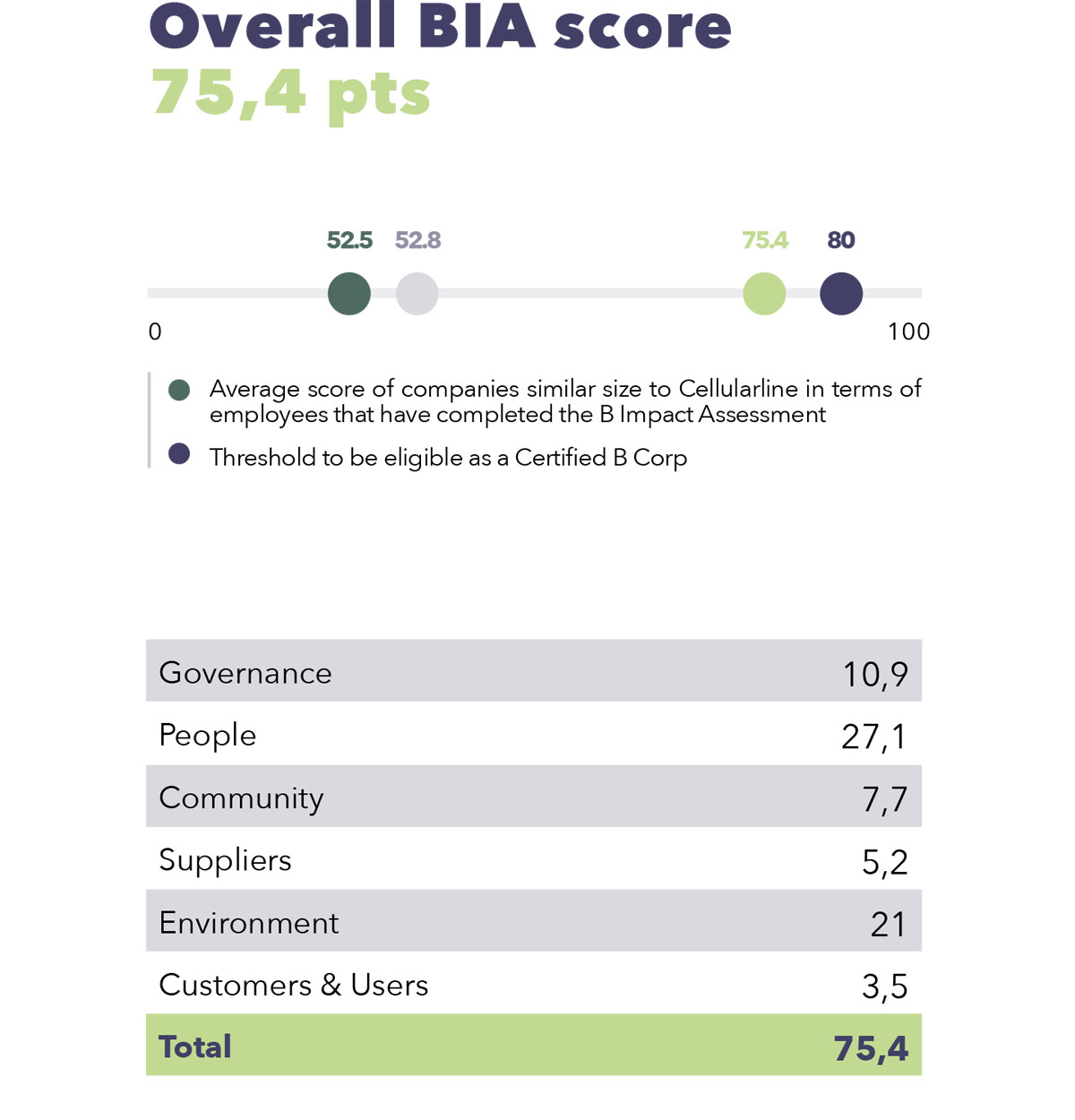Governance
We are convinced that transparency is the foundation of every sustainable action. For this reason we want to tell you, not only about the targets we have reached, but also the challenges that still lie in store.
We are shaping our governance in order to be able to deal with changes in the future in the way of doing business, which will redefine the structure of future business.
Success stories

BIA (B Impact Assessment)
The starting point of our journey has been the analysis of our environmental and social impact performance, through the international BIA standard developed and promoted by the non-profit organization B Lab.
Sustainability Life Cycle Assessment (SLCA)
We have conducted analyses on some of our more representative products using the SLCA method in order to identify their sustainability profile.
Stakeholder engagement
We set ourselves the goal of creating value for all key players that come into contact with us, starting with customers, moving on to commercial partners, suppliers, our people until reaching the community considered in its widest sense. We have identified specific involvement methods for each category of stakeholder with the objective of guaranteeing that we listen to stakeholders and develop joint projects to create value and promote sustainable development.

Partners with whom we have worked

Nativa is a Regenerative Design & Sustainability Innovation Company that, through its research, innovation and strategic consulting activities, accelerates the evolution of companies towards a sustainable and regenerative economic paradigm. It designs models and solutions to incorporate sustainability into the DNA of organizations, in order to improve their business outcomes and create lasting and shared prosperity for the planet, people, and the society.

The BIA is one of the most comprehensive, robust standards for measuring impacts, used globally, developed by B Lab (a non-profit organization which gave rise to the Benefit – B Corp certification movement and legal status of the Benefit Corporation) that is adopted by more than 150,000 companies throughout the world. The BIA provides useful indications on the economic, social and environmental performance of a company taking into consideration not only the business model, but also five macro areas: governance, people, communities, environment and customers. The measurement of the impact is represented by a total index on a scale of 0 to 200 points. This instrument allows the creation of benchmarks of the company’s position in relation to companies that have already used it and to have an exhaustive guide on the possible areas of improvement and actions to undertake.

The Natural Step is an international non-profit organization founded in Sweden in 1989 created to accelerate the transition to a truly sustainable global society, the creator of the Framework for Strategic Sustainable Development (FFSD) and the four principles of sustainability which are necessary, sufficient and universal to describe a sustainable future. The Sustainability Life Cycle Assessment (SLCA) is an analysis methodology developed by The Natural Step – Nativa. Based on decades of scientific research, it makes it possible to evaluate the sustainability profile of a product throughout its entire life cycle, in relation to the four principles of sustainability by measuring the systems and mapping the activities planned for reducing them.
Our priorities and our matrix
